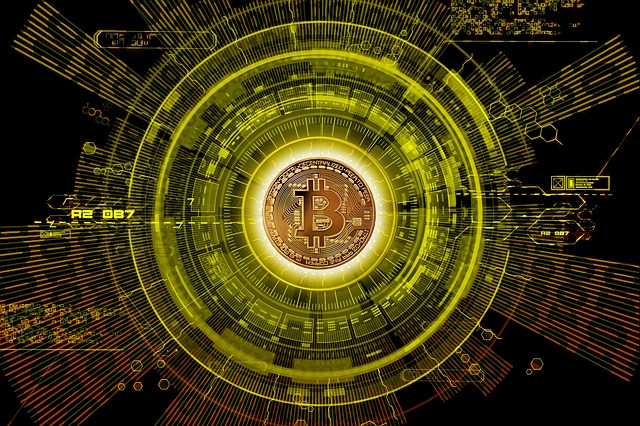How Cryptocurrencies Are Getting Into The World Of Healthcare?

Blockchain and cryptocurrencies are arguably the most influential technological phenomenon of the past decade. While people used to buy Bitcoin as an investment, lately we’ve seen cryptocurrencies increase their presence in various fields.

Advances in cryptocurrency technology have understandably allowed blockchain technology to disrupt and decentralize financial services. However, more and more industries are using cryptocurrencies to revolutionize their own way of functioning.
This article will explore how cryptocurrencies are getting into the world of healthcare and the different ways they enhance the industry for everyone involved.
First, let’s go through some blockchain basics to understand what we’re dealing with.
What Is Blockchain?
To understand how digital money is helping improve the world of healthcare, we need to have a closer look at the technology behind it.
Blockchain technology first emerged with the creation of Bitcoin in 2009. This peer to peer network allows people to exchange value in the form of digital currencies, independently from any governing body.
All economic transactions executed on the network are permanently recorded on a public ledger and remain accessible at all times. This transparency and decentralization reduces the risk of corruption or hacking and makes blockchain transactions more secure.
Furthermore, since its inception, the technology has seen significant upgrades in its functionality. For example, with the creation of Ethereum, we were introduced to smart contracts. These virtual agreements have facilitated not only the exchange of money, but also content, assets, property, or anything of value.
As such, blockchain technology has a wide range of applications and uses in healthcare.
How Can Blockchain Improve Healthcare
The ledger technology facilitates the secure transfer of patient medical records, manages the medicine supply chain, and helps healthcare scientists with research collaboration.
A great example of a wide-range use of blockchain in healthcare is Estonia. This European country has begun using the technology as early as 2012. At first, it was a means to secure data and process transactions. Today, all of the country’s healthcare billing is handled on a blockchain. More than 95% of patient information is ledger-based and all transcription information has been digitalized.
Below are just a few ways that cryptocurrencies can help improve the healthcare field.
Securing Patient Data
Keeping patient data secure is the most popular use of blockchain in healthcare at the time of writing. This comes as no surprise, as patient information is often exposed to data breaches.
Not only do attacks expose personal information and health records, but also credit card and banking details.
By design, blockchain technology is decentralized, rendering malicious attacks much more difficult to execute. Data cannot be corrupted or duplicated, so falsifying records is close to impossible.
Additionally, blockchain data can remain completely private, concealing the identity of the individuals represented therein.
Streamline Care and Prevent Mistakes
Miscommunication between medical professionals leads to costly errors, which can be of financial or much more unfortunate, human nature. An enormous amount of ressources are wasted in accessing and sharing patient medical records, and corrupted data can lead to grave medical mistakes.
Blockchain medical records help prevent these. The public ledger also allows medical professionals to share information quickly and securely by building an entire ecosystem of patient data. It can be seamlessly accessed by anyone that is involved in the treatment process – patients, doctors, pharmacists, insurance providers, etc.
Medical Supply Chain Management And Traceability
Counterfeit drugs have become a globalized problem in the past decades, especially in smaller and third-world countries. Not only do they make consumers pay for products that have no medical value but can lead to unresolved health problems and even death.
With blockchain’s implications in the medical supply chain, transaprency is guaranteed in the entirety of the supply process. The ledger tracks the point of origin of the medicine and records every step in the distribution until it reaches the consumer.
Collaboration For Scientific Advancements
The advantages of blockchain in healthcare go way beyond traceability and security. For example, genomics has the potential to improve medical treatments in ways that we deemed unachievable in the past.
Blockchain technology is a perfect match for this growing industry. It can safely store genetic records, and make them accessible to scientists globally. It allows a borderless contribution to a common human problem, allowing for faster and more efficient collaboration between medical scientists.
Conclusion
The technology behind cryptocurrencies creates unique opportunities to enhance the healthcare field. It ensures access to more accurate, complete, and trustworthy health data, thus allowing for more efficient and personalized healthcare.
And while still in its infancy, blockchain has shown that it can be a valuable addition in a vast array of applications, like security, data sharing, collaboration, and the medical supply chain.
Finally, it provides positive and measurable solutions that could give humanity the edge in dealing with a global crisis like the recent COVID-19 pandemic.
